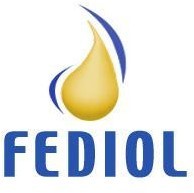
COVID-19 impacts on the EU grain trade, oilseed crushing, farm animal feed sector
Date
Sections
During these times of crisis, COCERAL, FEDIOL, FEFAC, their member associations and individual companies are fully committed to fulfil their core mission: to continuously supply the food and feed chain by ensuring that nutritious and safe products are available at all times to the food and livestock industry. This helps provide access to affordable food to all European citizens and adequate nutrition to animal husbandry.
The fast crisis response coordinated by the EU Commission through its Green Lanes agreement, as well as the recent G-20 declaration on COVID-19, highlighted the critical importance of maintaining global trade in food and feedstuffs.
As the current crisis has shown us, a well-functioning internal market is of vital importance in ensuring food security in Europe. Therefore, broader awareness of the crucial role of grain trade, oilseed crushing and feed production is needed at national level to address persisting key short-term challenges on transport logistics.
In this sense, long waiting times at border posts and lack of access to Personal Protective Equipment, as well as fast changing COVID-19 guidance for our workforce on manufacturing plant sites, ship crews and truck drivers remain important issues in many countries. This may still lead to disruptions and adverse impacts on the continuous flow of commodities for our strategic supply chains.
We strongly urge the European Commission and competent national authorities in Europe and in export countries to continue developing and implementing a harmonised COVID-19 guidance for the workforce of food and feed chain operators, as well as trading companies. This approach should secure the proper flow of goods and functioning of the internal market, but also imports of agricultural raw materials and ingredients.
In addition, the EU Commission and Member States need to prepare the groundwork for an orderly and coordinated step-wise way out of the crisis, including a lifting of national COVID-19 measures that will preserve an uninterrupted food and feed supply chain, which is essential to ensure food security.
COCERAL is the European association of trade in cereals, oilseeds, rice, feedstuffs, olive oil, oils and fats and agrosupply. It represents the interest of the European collectors, traders, importers, exporters and port silo storekeepers of the above-mentioned agricultural products. COCERAL’s direct members are located in 14 EU countries, with one European association, Unistock representing the professional portside storekeepers for agribulk commodities within the EU and one associated member in Switzerland. With about 3000 companies as part of COCERAL national members, the sector trades agricultural raw materials destined to the supply of the food and feed chains, as well as for technical and energy uses. Gafta is an extraordinary member of COCERAL.
FEDIOL, the EU vegetable oil and protein meal industry association, represents the interests of the European oilseed crushers, vegetable oil refiners and bottlers. FEDIOL members are 10 national associations and associated company members in 7 other EU countries. With about 180 facilities in Europe, the sector provides 20,000 direct employments. Its members process approximately 55 million tonnes of basic products a year, both of EU origin and imported from third country markets. The sector processes notably rapeseed, sunflower seed, soybeans and linseed into oils and meals for food, feed, technical and energy uses essentially on the European market.
FEFAC, the European Compound Feed Manufacturers’ Federation, represents 23 national Associations in 23 EU Member States as well as Associations in Switzerland, Turkey, Serbia, Russia and Norway with observer/associate member status. The European compound feed & premix industry employs over 100,000 persons on app. 3,500 production sites often in rural areas, which offer few employment opportunities.



